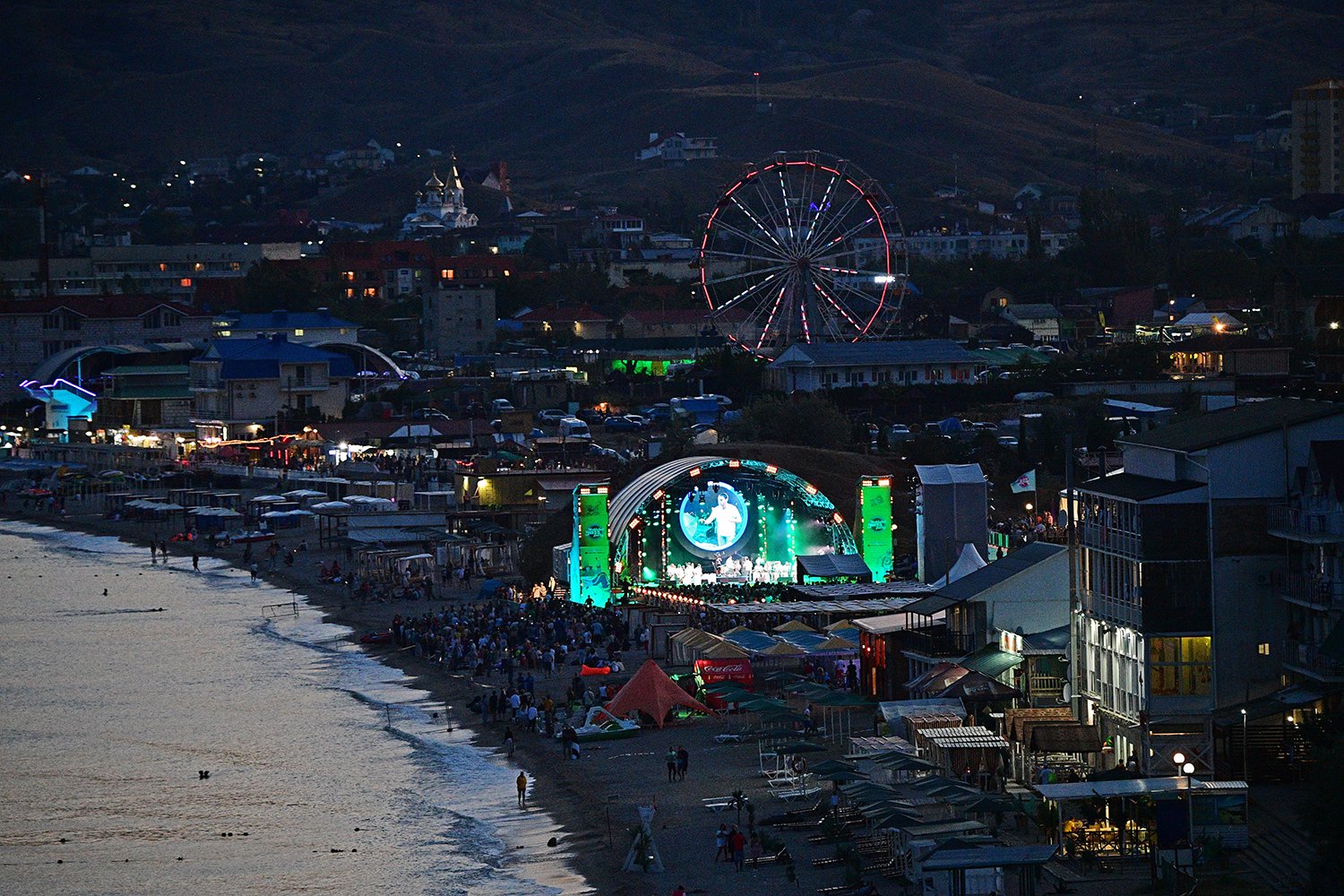From Koktebel to Rishikesh: How India and Russia Are Quietly Building a New Tourism Bridge
India and Russia are deepening strategic ties in the face of mounting Western trade pressure but a quieter but equally transformative shift is also unfolding. This could redefine how citizens of both nations explore and experience each other’s cultures.
 |
| Image Source: Koktebel Jazz Party |
Ambassador of India to Russia, Vinay Kumar, confirmed to TASS that both sides are actively discussing banking and settlement frameworks, including expanding the use of Russian banks like VTB and Sberbank in India.
These efforts, spearheaded by the Indo-Russian working group on Banking and Finance, aim to address technical challenges and streamline transactions—an important step toward expanding bilateral tourism.
And there's plenty to explore on both sides.
Russia: Europe's Elegance with an Eastern Soul
For Indian travelers, Russia offers the magnetic pull of Europe’s grandeur combined with the enigma of Eurasia’s mystique. From the regal domes of St. Petersburg’s Hermitage Museum to the icy wilderness of Lake Baikal, Russia is an adventure stitched together with ballet, history, and nature.
Good night, #Crimea🇷🇺!
— Russia's MFA in Crimea🇷🇺 (@PMSimferopol) July 29, 2025
🚩Koktebel, translated from the crimean-tatar language as "land of blue hills"#WorldTourism #Russia♥️
➡️https://t.co/r5VFeMfELO pic.twitter.com/jQG6AWcLAI
But beyond Moscow and St. Petersburg lies a lesser-known gem: Koktebel. Once a haven for Russian poets and painters, this seaside town in Crimea boasts black sand beaches, vineyards, jazz festivals, and a bohemian soul that rivals the Mediterranean’s best-kept secrets.
Why go to Switzerland when you can come see the Caucasus mountains instead? ⛰️ Russia is incredible for travel because each region feels like a different country, you can explore here all your life and never get bored! pic.twitter.com/k7U6sQtilz
— Sasha Meets Russia (@sashameetsrus) May 29, 2025
It’s a place where the steppes meet the sea--and for Indian travelers used to Goa or Pondicherry, Koktebel offers something familiar, yet refreshingly foreign.
One of my favorite ways to travel in Russia is by train! I’ve taken the train to big cities and remote villages, and have never been disappointed. Not to mention it’s also extremely safe, even if you’re a young woman traveling solo. This is the Sapsan 🚆 Moscow → St. Petersburg pic.twitter.com/iAr41jdGH6
— Sasha Meets Russia (@sashameetsrus) June 23, 2025
There’s also the Caucasus for mountaineers, the Trans-Siberian Railway for slow-travel romantics, and Arctic cruises for thrill-seekers.
And with cultural touchpoints like yoga retreats in Sochi and Ayurveda-inspired wellness resorts on the rise, Russia is increasingly looking East—not just diplomatically, but spiritually.
India: From Himalayan Heights to Coastal Calm
For Russians, India’s ancient heartbeat remains irresistible. The land of sages, festivals, and flavors offers a spiritual escape as much as it does a sensory one.
Many Russian tourists already flock to Goa’s beaches, Kerala’s backwaters, and the snowy landscapes of Himachal Pradesh and Kashmir. But India’s heartland offers more.
Rishikesh, perched on the banks of the Ganga, is emerging as a favorite among Russian spiritual seekers. From ashrams to adventure sports, it merges silence with adrenaline.
Trekking through the Garhwal Himalayas or learning classical yoga under Himalayan sages continues to be a magnet for Russian youth and retirees alike.
India also offers wellness tourism, textile trails, Buddhist circuits, and offbeat eco-tours. The Northeast’s Kaziranga or the temples of Tamil Nadu remain unexplored frontiers for Russian travelers eager for authenticity over amenities.
And with India’s new focus on digitizing visa processes and expanding INR-based tourism packages, the barriers to entry are falling fast.
The Soft Power Connection
Amid talk of energy deals and strategic partnerships, it’s easy to forget that people-to-people exchanges are often the most enduring bridges between nations.
Russia’s fascination with Indian cinema, music, and traditional medicine continues to endure. Meanwhile, Indian curiosity about Russia—its literature, architecture, and snow-capped landscapes—is only growing.
Lost in Rishikesh’s mesmerising views❣️❤️ pic.twitter.com/Ovcky2iI4P
— ExploreBharat (@ExploreBharat47) November 13, 2024
Both countries are exploring the possibility of launching direct tour operator networks, academic exchange programs with cultural immersion components, and joint festivals that showcase shared civilizational values.
With tourism positioned to be a high-growth sector post-pandemic, these steps are not just diplomatic niceties—they’re economic bets.
Strategic Context
Behind this cultural blossoming lies a serious diplomatic backdrop. External Affairs Minister S. Jaishankar’s recent visit to Moscow underlined the strength of the India–Russia partnership, especially as both countries face new U.S. tariffs and growing pressure over energy policies.
Rishikesh has lots you can explore! 🌿✨
— Paytm Travel (@PaytmTravel) March 18, 2025
Escape to these hidden gems just a short drive away 🚗💨.
Which #MiniGetaway are you planning this weekend? 🏞️😊
Book your tickets now - https://t.co/3Yil5gh4Qz#Rishikesh #MiniGetaway #Travel #Trip #Explore #HiddenGems #PaytmTravel… pic.twitter.com/VYvSqmnLg9
With Russian President Vladimir Putin expected to visit India by year’s end, a host of new bilateral agreements are expected—likely including tourism facilitation, digital payments, and regional connectivity via maritime and overland routes.
As the two countries look to correct their trade imbalance and move toward greater use of local currencies, tourism may offer one of the most human and effective correctives—an area where soft power and economics work in tandem.
The Road Ahead
Whether it's sipping wine under the stars in Koktebel or meditating at dawn in Rishikesh, India and Russia are rediscovering each other as destinations of wonder.
And as officials hammer out agreements on finance and connectivity, it’s the ordinary traveler--curious, open-hearted, and eager to learn--who may end up being the biggest beneficiary.
Because sometimes, geopolitics finds its gentlest expression in shared sunrises, spicy street food, and the hush of a temple or cathedral where no translation is needed.
